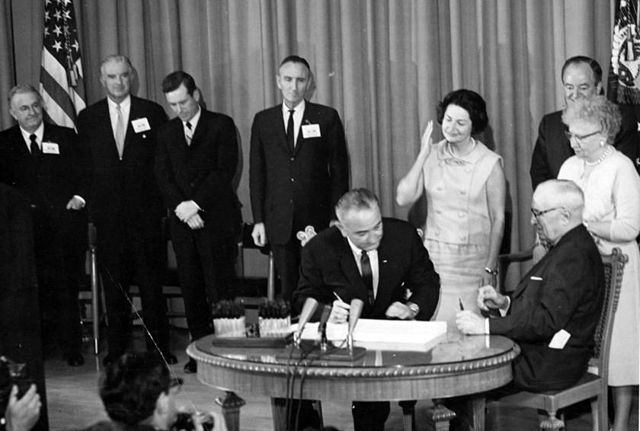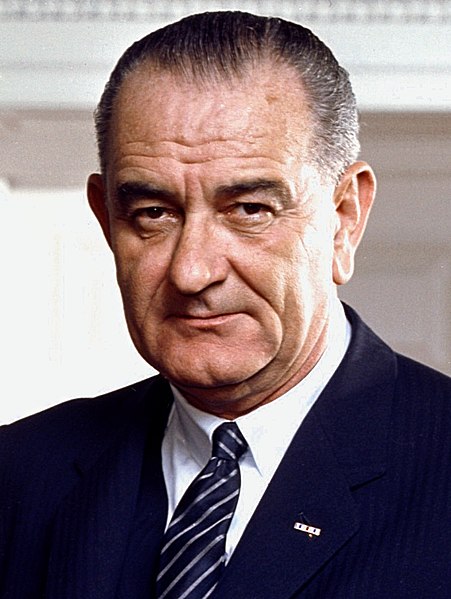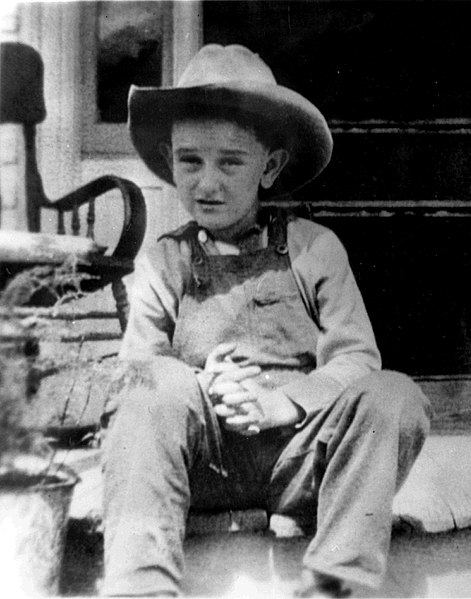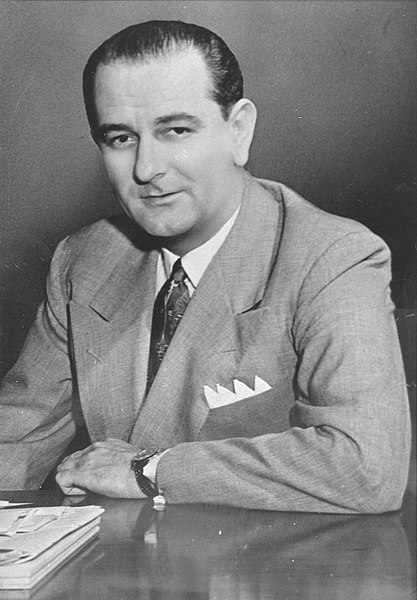The Great Society was a set of domestic programs in the United States launched by President Lyndon B. Johnson in 1964 and 1965. The term was first referenced during a 1964 speech by Johnson at Ohio University, then later formally presented at the University of Michigan, and came to represent his domestic agenda. The main goal was the total elimination of poverty and racial injustice.
The pens used by President Lyndon B. Johnson to sign Great Society legislation
President Johnson signs the Voting Rights Act of 1965.
The August 1964 signing of the Poverty Bill
President Johnson signs the Social Security Act of 1965.
Lyndon Baines Johnson, often referred to by his initials LBJ, was an American politician who served as the 36th president of the United States from 1963 to 1969. He became president after the assassination of John F. Kennedy, under whom he had served as the 37th vice president from 1961 to 1963. A Democrat from Texas, Johnson also served as a U.S. representative and U.S. senator.
Official portrait, 1964
A seven-year-old Johnson, wearing his trademark cowboy hat, at his childhood farmhouse near Stonewall, Texas, in 1915
Johnson as a lieutenant commander in the U.S. Naval Reserve in March 1942
Johnson's United States Senate portrait in the 1950s








